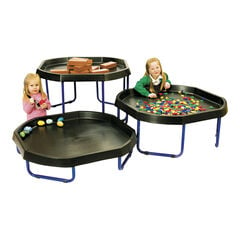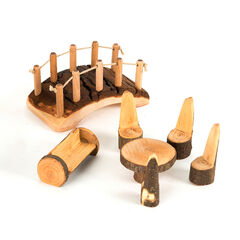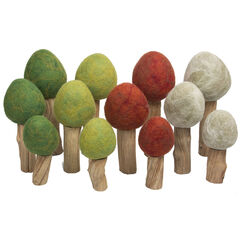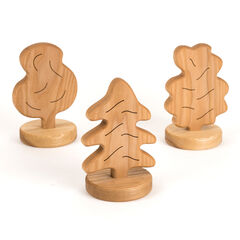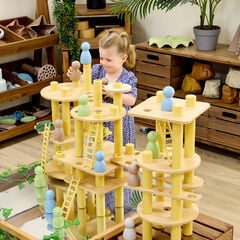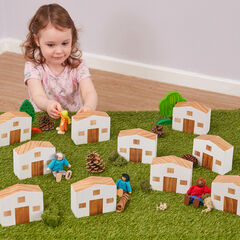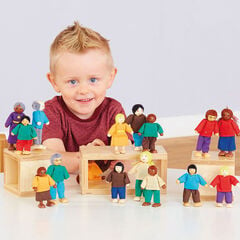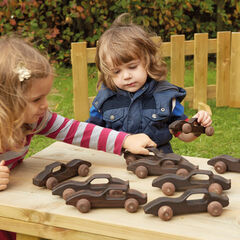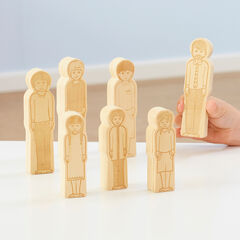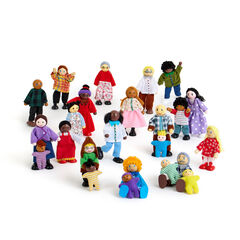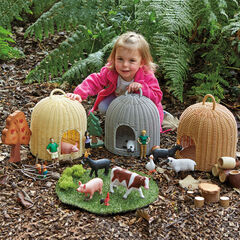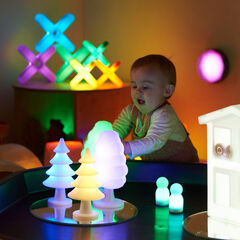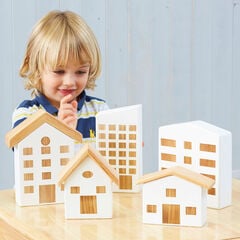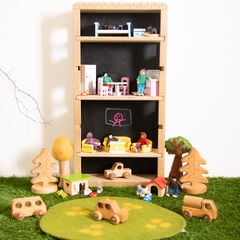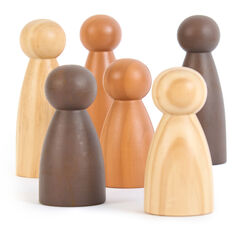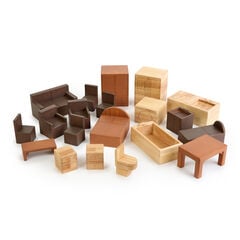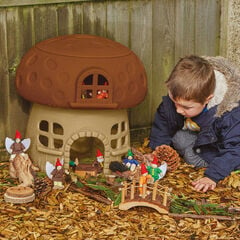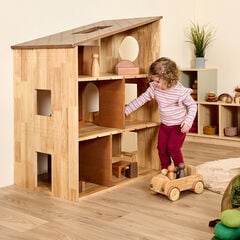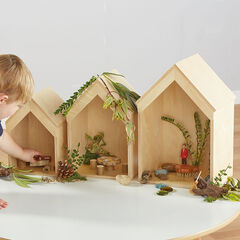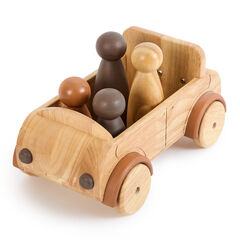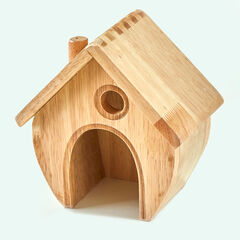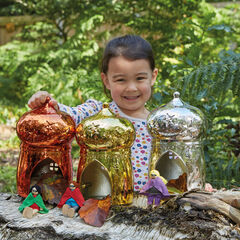When children immerse themselves in small world play, they act out roles and scenarios, many of which they have experienced first hand. These activities also provide opportunities for children to ‘imitate everyday actions and events from own family and cultural background’. Children gain a great sense of who they are and where they belong in the world through this type of play, and if given the opportunity, can discover and relate to a variety of real life situations.
Small world play can be purposefully set-up by an adult so that it reflects a variety of cultures and diverse communities. This provides children with the opportunity to experience the similarities and differences between themselves and others.
Provide Natural Resources to Learn about the Real World
Providing natural materials to a small world activity arouses children’s awareness of the features of the natural environment which they live in, provoking interest and discussion.
Top Tip: We added a ‘fairy house’ to our ‘Fairy Garden’ or ‘Enchanted World‘, which was a pineapple with windows and doors cut-out of it which provided a sensory experience for the children. After a few days it began to decay, allowing the children a window of opportunity to observe and understand growth, decay and changes over time.
Natural resources encourage children to bring all of their senses into play. Observe objects closely and identify their similarities and differences by smelling, touching and perhaps even tasting (for the ones who may still explore objects with their mouths). Of course, when objects which impose small risks are added to play, adult supervision is imperative. Natural materials present opportunities for sorting, classifying and encourage the use of descriptive language – all important skills for young children’s mathematical and language development. Providing an interesting and ever-changing environment for children to explore is an ideal way to develop their curiosity, creative thinking and provides opportunities for them to ask questions. Let them talk about the things they have discovered. When the adult poses purposeful open-ended questions to the child, this promotes conversation and sustained-shared thinking.
An Active World Tuff Tray and Small World Active World Tray Mats can offer the perfect base for a whole range of small world play setups!
Developing Personal, Social and Emotional Skills through Small World Play
Giving children the opportunity to act out experiences through small world play supports the development of their personal, social and emotional skills. It acts as a catalyst for children to explore their innermost thoughts and feelings. For a child who may struggle to articulate how they are feeling to an adult, they may find it easier to use a person or animal figure, for example, to convey these emotions in a role-play situation. It is important that there is an adult available to support the play and build on the child’s understanding of expressing thoughts and feelings.
Early Years practitioners play a vital role in supporting children’s social skills when engaging in small world play with children. Sharing, turn-taking and negotiation are just some of the skills exercised and developed during small world play and adults should support this well. You may find that the child who prefers to stay quiet during group sessions is now suddenly keen to speak out loud and exhibits confidence whilst acting out being a tiger in the jungle.
When children take on and act out another role, it supports their language development, confidence building and self-esteem.
The adult should be conscious that, although they are creating the small world play, they are not leading the play; that is for the child to do.
Immerse yourselves in the play, see the world from their eyes, and, most importantly, let their imaginations run wild!
Take a look at our small world play in a tuff spot blog post for ideas and inspiration.
Shop the TTS range of Small World Resources here
With thanks to Laura Mooney, Early Years Quality Officer (Bury Council) for writing this post








